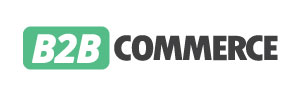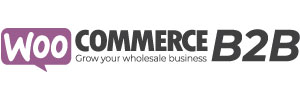What do I need to know to integrate Sage Business Cloud with WooCommerce?
In this article we’ll look at all the components that need to be in place in order to integrate Sage Business Cloud with WooCommerce for automatic inventory stock, price and order updates.
The Sage Business Cloud integration with WooCommerce is actually very simple to do, with Sage Business Cloud being exactly that, “Cloud-based”. We integrate Sage Business Cloud with WooCommerce by doing the following:
How do I integrate Sage Business Cloud with WooCommerce in SA?
In order to achieve Sage Business Cloud WooCommerce Integration In SA, you’ll need to supply the following details:
To integrate Sage Business Cloud to Storehub.io:
- Sage Business Cloud login details (username/password)
- Which pricelist name you’d like to sync to your online store
- What tax/VAT rate settings you’d like to push to your WooCommerce store (Including or Excluding)
To integrate WooCommerce with Storehub.io
- WordPress/WooCommerce login details (username/password)
- Set up the API key/Secret in WooCommerce
- Copy-paste the API key/Secret onto your Storehub.io account
What information syncs from Sage Business Cloud to WooCommerce?
When integrating Sage Business Cloud and WooCommerce in SA, the following information syncs on a per-minute basis, so all your inventory is kept up-to-date on your WooCommerce store:
- Product SKU code
- SKU price
- SKU stock level
- SKU tax rate
- SKU unit type
- Cash sale customer
- Delivery service item
What data syncs back from WooCommerce to Sage Business Cloud?
Every time an order is placed on WooCommerce, the order information is instantly sent to Storehub.io and thereon to Sage Business Cloud. The following information from orders is pushed into Sage Business Cloud from Storehub.io:
- Delivery address
- Billing address
- Order SKU items & Quantity
- Discount %
- Any pack/bundle SKU codes
- Customer name/email/contact number
Different document type in Sage Business Cloud based on payment method used on WooCommerce
Storehub.io can raise different sales document types in Sage Business Cloud depending on the payment method your customer has used on WooCommerce. This will determine how the Sage Business Cloud integration with WooCommerce in SA fits in with your existing business needs.
The following document types are commonly used:
- Quote (does not reserve stock, can be easily deleted)
- Sales Order (may reserve stock, depending on company setting on ERP)
- Invoice (confirms transaction as final, ready for pick/pack/ship)
You may link a payment method on Woo to either of the above document type options in Sage Business Cloud. A typical example of this would be:
- EFT (bank transfer): Quote (we do not know if customer is going to complete the transaction, so do not reserve stock for this customer)
- Payment Gateway (1): Sales Order (if payment is successful, reserve the stock for this customer via Sales Order document type, but may still require changes to order)
- Payment Gateway (2): Invoice (if payment is successful, print straight to invoice and order is ready for fulfillment/delivery)
How long does it take to set up Sage Business Cloud integration with WooCommerce?
Using Storehub.io to integrate your WooCommerce to Sage Business Cloud so they stay in sync and save you lots of time every month, we guarantee the sync setup is complete within 1 hour, tested and working, with a handover to be completed with customer. The handover is to guide you on how to manage your Sage Business Cloud to WooCommerce integration going forwards, but in reality, there is little you need to do to keep things running smoothly as it’s all automated.
How much does it cost to integrate Sage Business Cloud and WooCommerce?
The monthly subscription fee is based on the number of products you have in your inventory. Please visit the pricing page here on Storehub.io to find out which bracket you fit in to.
The initial setup is FREE, so you’ve got zero significant outlay to budget for in order to integrate your Sage Business Cloud with WooCommerce. If one were to custom develop this integration yourself, you’d be looking at well over R65 000, with an ongoing cost for maintenance etc.
Click here to register for a Storehub.io account and get started for free, today.












